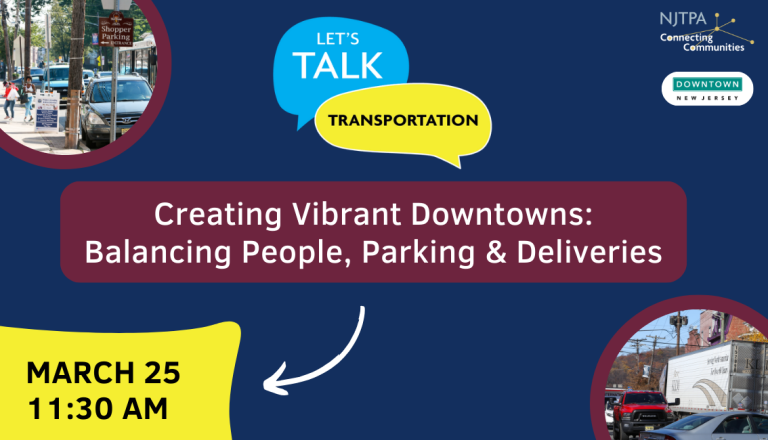4th Round Affordable Housing and What It Means to Your Downtown
By Deb Tantleff
Founding Principal
TANTUM Real Estate
August 15, 2024
The most significant factor contributing to New Jersey’s housing affordability crisis is a lack of supply. Add in other factors such as high property taxes, decades of suppressed housing production, a lack of developable land, restrictive land constraints, high regulatory costs, and a shortage of labor. Lastly, overlay the current financial climate which brings with it the highest interest rates in 22 years, and you have the perfect recipe for an enduring affordability crisis.
Earlier this year, the legislature adopted a series of bills targeted at increasing housing affordability. The main bill, A4/S50, attempts to streamline a process to use for the 4th round of municipal affordable housing obligations. Contrary to the 3rd round, which was weighed down by countless lawsuits between the public and private sectors, this bill encourages municipal compliance through municipal action. And creates a framework that allows all sides to focus on building equitable housing, rather than litigating as to determine municipal obligations.
By utilizing a codified objective formula, the Department of Community Affairs will be producing guidelines for municipalities, quantifying the regional housing obligations across each municipality. These numbers will be published on or about October 20, 2024, triggering a timeline whereby individual municipalities must adopt their numeric obligation by January 31, 2025. Thereafter, municipalities are required to adopt and endorse their Housing Element and Fair Share Plan by June 30, 2025.
Recognizing the reality of the situation, a timeline and process for challenging obligations and plans has also been proposed, outlining a final deadline for municipalities to amend plans and adopt ordinances by March 15, 2026. Importantly, the statute provides for municipalities to lose immunity from exclusionary zoning lawsuits (builder’s remedy) if they fail to meet this and other statutory deadlines.
 Another critical element of this legislation is the restructuring of the Vacant Land Adjustment process and the availability of Bonus Credits. Municipalities have had, and will continue to have, the ability to adjust their obligations based upon a lack of vacant land. However, recognizing redevelopment’s increasing role as a driver of economic development, under the statute, municipalities that avail themselves of the vacant land adjustment process are required to identify housing opportunities based on redevelopment potential, with redevelopment sites accounting for at least 25% of any prospective need obligation that has been adjusted. There have also been significant changes to the structure of Bonus Credits, with the new law allowing for a maximum credit of 1 per unit. Additionally, municipalities can only satisfy 25% of their total affordable need through the use of bonus credits.
Another critical element of this legislation is the restructuring of the Vacant Land Adjustment process and the availability of Bonus Credits. Municipalities have had, and will continue to have, the ability to adjust their obligations based upon a lack of vacant land. However, recognizing redevelopment’s increasing role as a driver of economic development, under the statute, municipalities that avail themselves of the vacant land adjustment process are required to identify housing opportunities based on redevelopment potential, with redevelopment sites accounting for at least 25% of any prospective need obligation that has been adjusted. There have also been significant changes to the structure of Bonus Credits, with the new law allowing for a maximum credit of 1 per unit. Additionally, municipalities can only satisfy 25% of their total affordable need through the use of bonus credits.
The bonus structure no longer distinguishes between rental and for-sale units recognizing there is inherent market demand for rental product which does not need to be incentivized like in prior rounds. Instead, the bonus structure now focuses on units that tend to be in extremely short supply, encouraging more permanent supportive units or special needs housing as well as 3-bedroom family units. Importantly, credits are available for senior housing as well as for transit-oriented housing. The legislation also provides for longer deed restrictions on affordability controls and allows for bonus credits when extending existing affordability controls on existing inventory.
So, what does all this mean to New Jersey and to our individual communities? The adoption of this legislation will create more opportunities to generate much-needed housing that will translate into affordability for all. Municipalities can and should see their affordable housing obligation as an opportunity – an opportunity to implement creative planning policies and thoughtful zoning standards that will result in the creation of dynamic mixed-use and mixed-income neighborhoods.

Residents of all ages, Millennials and Baby Boomers alike, continue to migrate to living in downtown walkable communities, complete with vibrant public spaces, access to mass transportation, and open space. These “urban-lite” environments have an inherent energy, a vibe generated by the critical mass of complementary uses and the ability for users to easily engage.
Municipalities that choose to encourage zoning and density that attract these types of dynamic uses will benefit from increased growth, economic activity and overall investment. By proactively planning for the future, New Jersey municipalities are primed to position themselves as desirable communities to live, work, visit and stay. All true public benefits that can be realized by a municipality meeting its obligation to provide affordable housing.
Deb Tantleff is the Founding Principal of TANTUM Real Estate – TANTUM is a dynamic real estate development and advisory firm that provides integrated solutions based on a cohesive vision and unrelenting commitment to creating vibrant multi-family and mixed-use communities.


